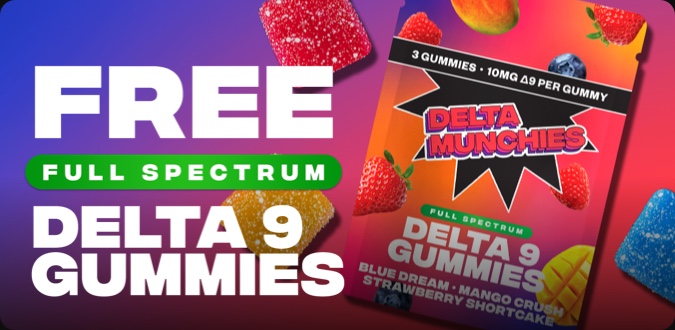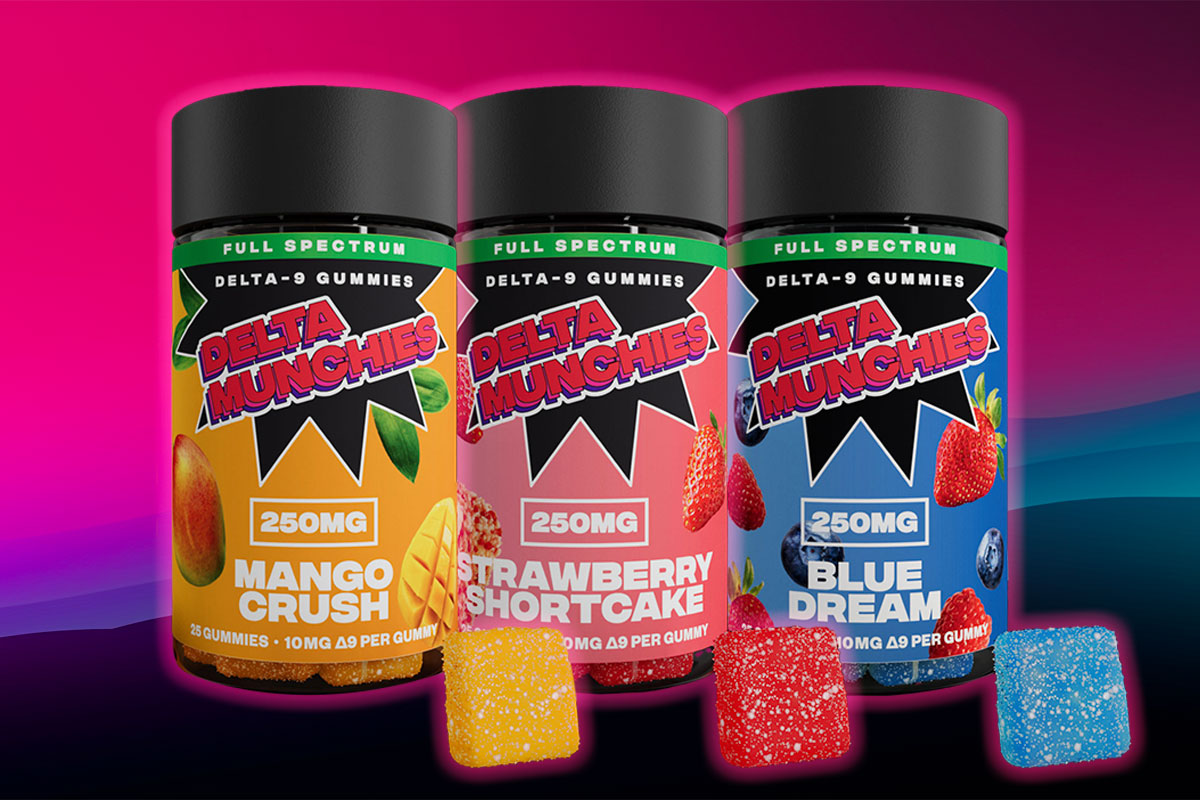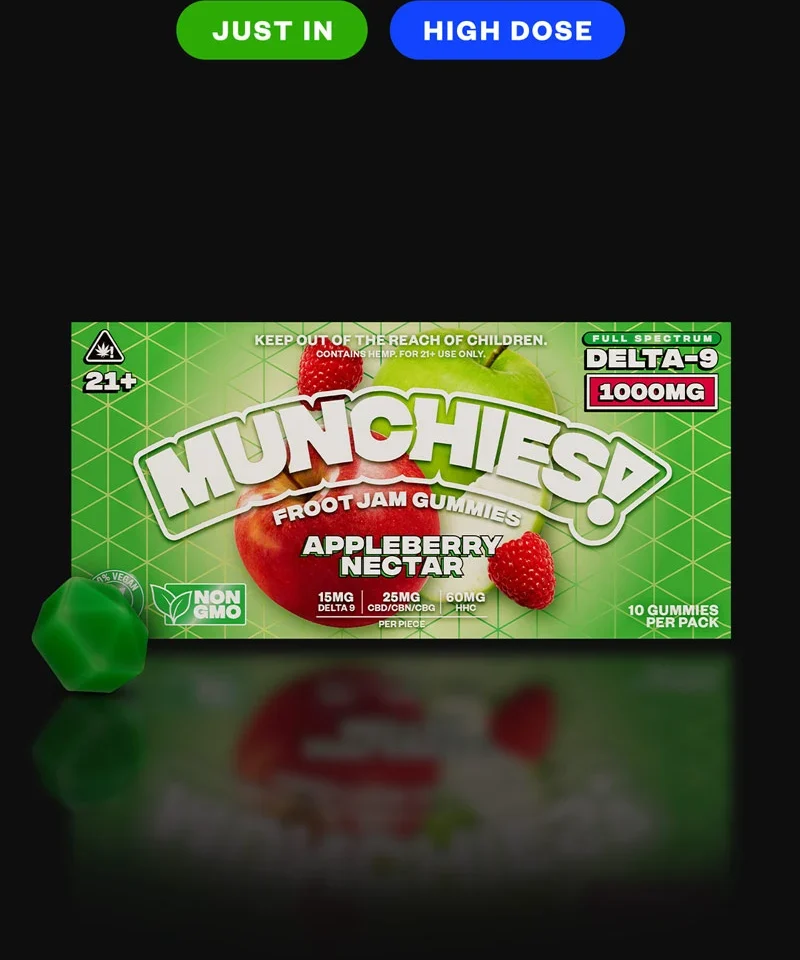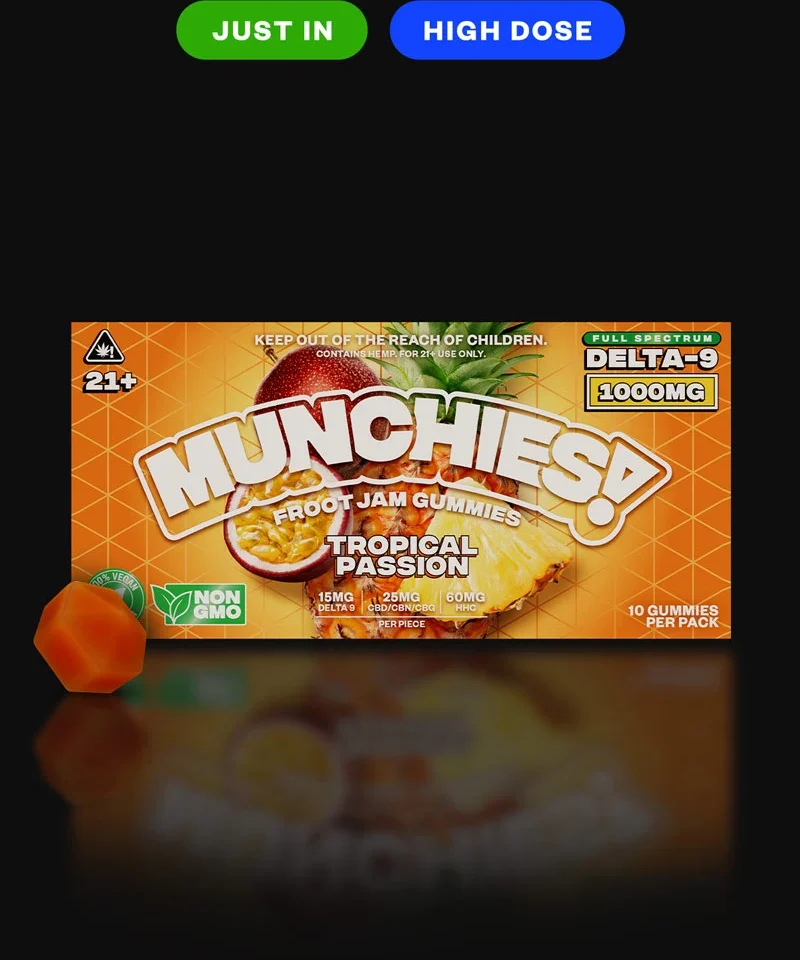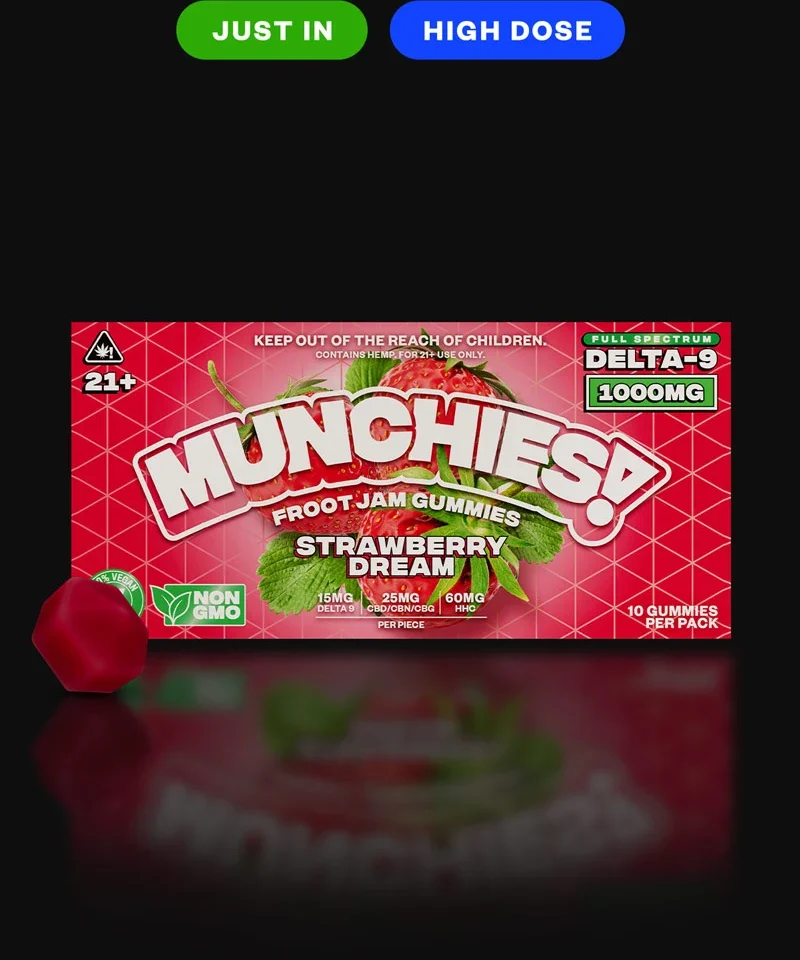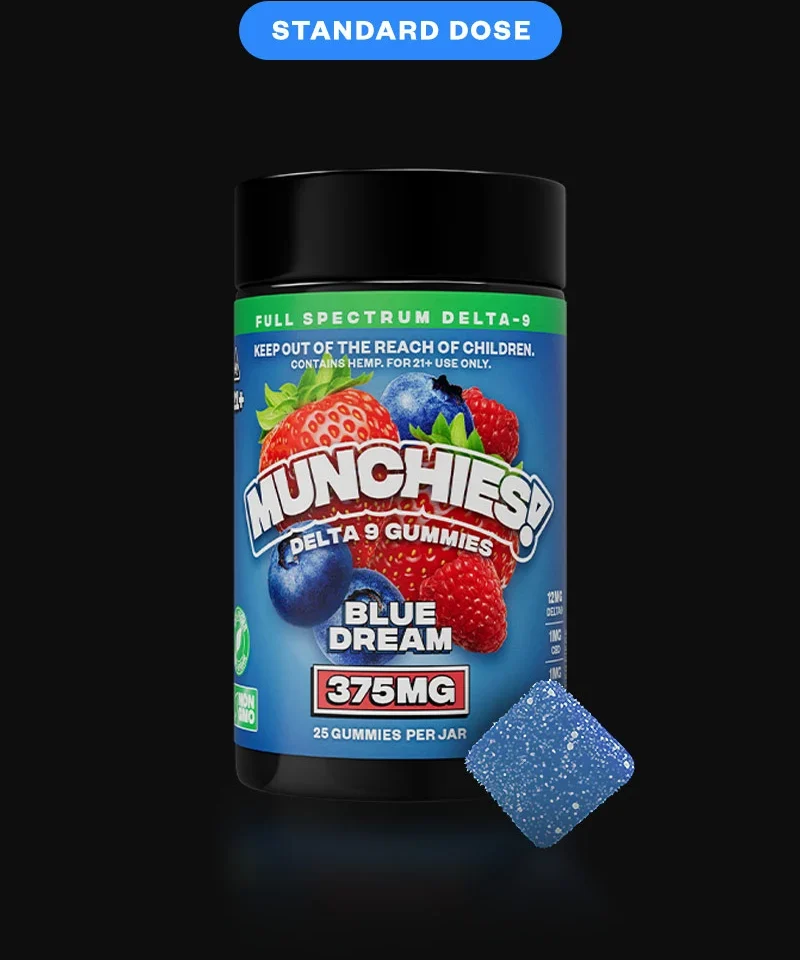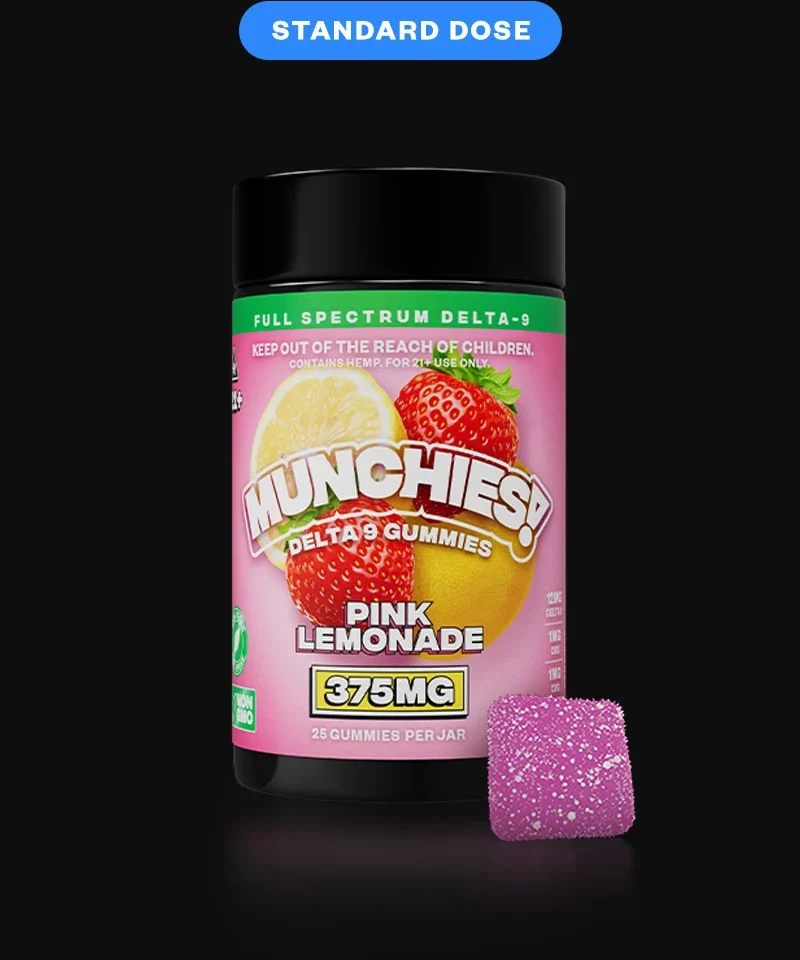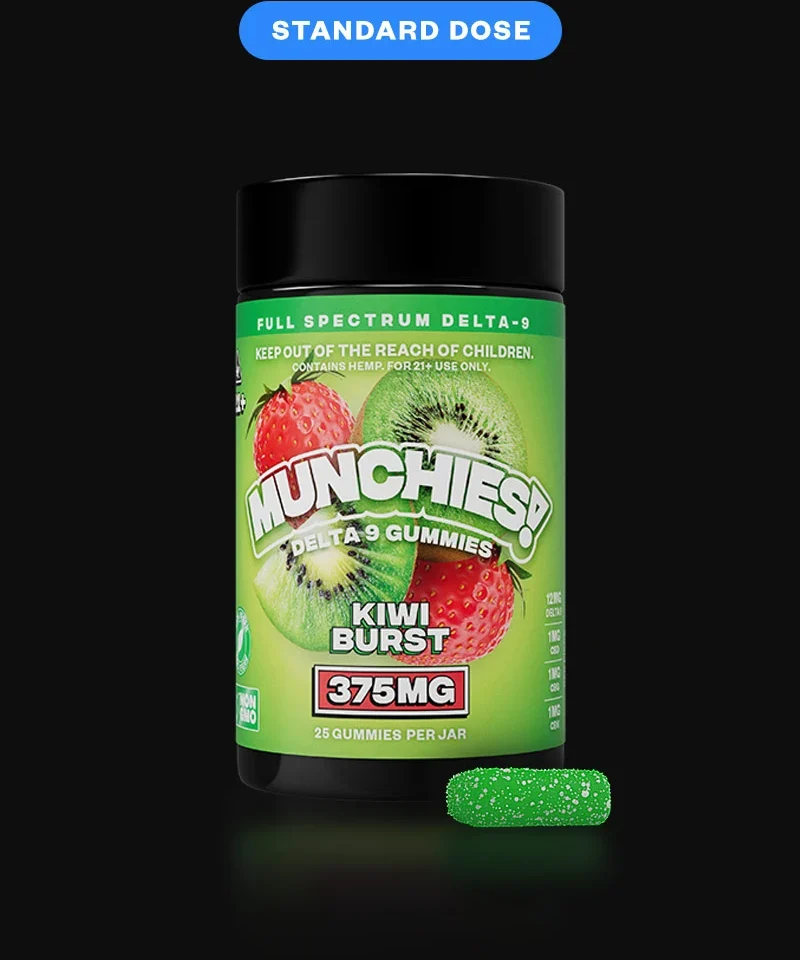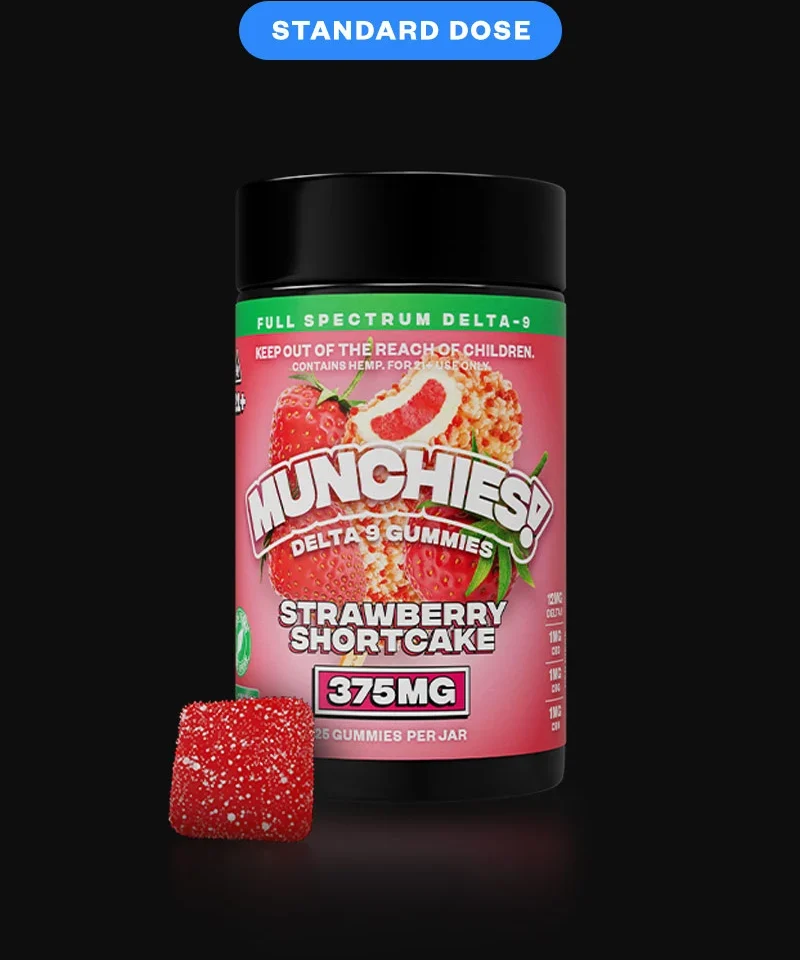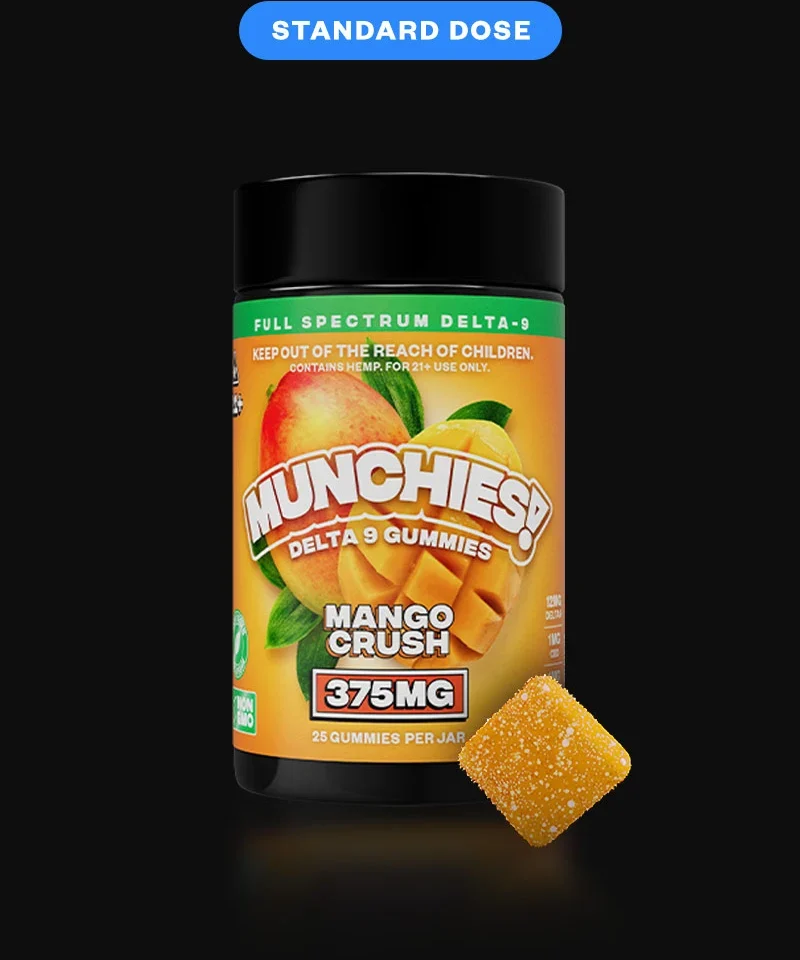Alternative Cannabinoids, Delta 9
Delta 11 THC vs. Delta 9 THC
Are you curious about the differences between delta 11 THC and delta 9 THC? Well, you’ve come to the right place! In this article, we’ll be diving into the unique properties of each type of THC and discussing their effects, benefits, and potential risks.
By the end of this read, you’ll have a comprehensive understanding of the delta 11 THC vs. delta 9 THC debate and be able to make an informed decision on which one is right for you. So, grab your favorite strain, kick back, and let’s get started!
While delta 11 is still very new, delta 9 is getting more popular every day. Click below to try our delicious delta 9 gummies!
Contents
- Key Takeaways
- What is Delta 11 THC?
- How is Delta 11 THC Made?
- What are the Effects of Delta 11 THC?
- What are the Benefits of Delta 11?
- Potential Side Effects of Delta 11 THC
- Best Way to Take Delta 11 THC
- What is Delta 9 THC?
- How is Delta 9 THC Made?
- What are the Effects of Delta 9 THC?
- What are the Benefits of Delta 9 THC?
- Potential Side Effects of Delta 9 THC
- Best Way to Take Delta 9 THC
- Delta 11 vs. Delta 9: Effects
- Delta 11 vs. Delta 9: Potency
- Delta 11 vs. Delta 9: Legality
- Delta 11 vs. Delta 9: Cost
- Where to Buy Delta 9 THC
Key Takeaways
- Delta 11 THC, also known as delta 11 tetrahydrocannabinol, is a rare cannabinoid found in small quantities in some strains of cannabis.
- Some research suggests that delta 11 THC may have anti-inflammatory, analgesic, and neuroprotective properties, although more studies are needed to fully understand its potential therapeutic applications.
- Delta 11 THC and delta 9 THC are two different forms of THC, each with its own set of effects.
What is Delta 11 THC?
Delta 11 THC is a rare cannabinoid found in small quantities in some strains of cannabis. It is similar in structure to other cannabinoids, such as delta 9 THC and CBD, but it has a slightly different molecular arrangement that may result in different effects or properties.
Delta 11 THC is not as well-known or extensively studied as other cannabinoids, and there is limited information available on its specific properties, effects, and potential benefits. Some research suggests that delta 11 THC may have anti-inflammatory, analgesic, and neuroprotective properties, although more studies are needed to fully understand its potential therapeutic applications.
It is important to note that delta 11 THC is still considered a controlled substance in many countries, and its legal status may vary depending on the jurisdiction.
Additionally, the safety and potential risks associated with delta 11 THC are not well-known, and it is recommended to consult with a healthcare professional or a cannabis expert before consuming any cannabis products that may contain delta 11 THC.
How is Delta 11 THC Made?
Delta 11 THC is a rare and naturally occurring cannabinoid that is found in small quantities in some strains of cannabis. However, it can also be synthesized from other cannabinoids through chemical processes.
One common method for producing delta 11 THC involves heating delta 9 THC or other cannabinoids in the presence of acids or other chemical reagents. This process can result in the conversion of delta 9 THC into delta 11 THC, although the yields may be relatively low, and the purity of the resulting product may be difficult to control.
Another method for producing delta 11 THC involves using genetically modified yeast or bacteria to produce the cannabinoid. This method involves introducing specific genes into the microorganisms that allow them to produce delta 11 THC, which can then be extracted and purified for use in various products.
It is important to note that the production and use of delta 11 THC may be subject to various legal and regulatory restrictions. It is recommended to consult with a healthcare professional or a cannabis expert before consuming any products containing delta 11 THC.
Additionally, the safety and potential risks associated with this cannabinoid are not well-known, and more research is needed to understand its properties and effects fully.
What are the Effects of Delta 11 THC?
The effects of delta 11 THC are not well-known or extensively studied, as it is a relatively rare and lesser-known cannabinoid. However, based on limited research and anecdotal reports, delta 11 THC may have some similar effects to other cannabinoids, such as delta 9 THC, but with potentially milder or less potent psychoactive effects.
Some of the potential effects of Delta 11 THC may include:
- Relaxation: Delta 11 THC may have relaxing and calming effects that may help to reduce stress and anxiety.
- Pain relief: Delta 11 THC may have analgesic properties and may be effective in reducing pain and inflammation.
- Improved mood: Some users have reported that delta 11 THC can enhance mood and create feelings of euphoria or well-being.
- Improved focus and creativity: Some users have reported that delta 11 THC can enhance focus, creativity, and cognitive function.
It is important to note that the specific effects of delta 11 THC may vary depending on individual factors such as age, body weight, tolerance, and overall health, as well as the specific product and method of consumption.
If you are considering consuming Delta 11 THC, it is recommended to start with a low dose and to consult with a healthcare professional or a cannabis expert.
What are the Benefits of Delta 11?
The potential benefits of delta 11 THC are not well-known or extensively studied, as it is a relatively rare and lesser-known cannabinoid. However, based on limited research and anecdotal reports, delta 11 THC may have some potential therapeutic applications, similar to other cannabinoids such as delta 9 THC and CBD.
Some of the potential benefits of delta 11 THC may include:
- Anti-inflammatory effects: Delta 11 THC may have anti-inflammatory properties, which may make it effective in helping people with various inflammatory conditions.
- Pain relief: Delta 11 THC may have analgesic properties and may be effective in reducing pain and inflammation.
- Neuroprotective effects: Some studies suggest that delta 11 THC may have neuroprotective properties, which may make it effective in treating various neurological conditions.
- Anxiety and stress relief: Delta 11 THC may have relaxing and calming effects, which may help soothe stressed and anxious minds.
Potential Side Effects of Delta 11 THC
The potential side effects of delta 11 THC are not well-known or extensively studied, as it is a relatively rare and lesser-known cannabinoid. However, based on limited research and anecdotal reports, delta 11 THC may have some similar side effects to other cannabinoids, such as delta 9 THC, but with potentially milder or less potent psychoactive effects.
Some of the potential side effects of delta 11 THC may include:
- Dry mouth: Delta 11 THC may cause dry mouth, also known as cottonmouth, which can be relieved by drinking water or other fluids.
- Red eyes: Delta 11 THC may cause red or bloodshot eyes, which can be relieved by using eye drops.
- Drowsiness: Delta 11 THC may cause drowsiness or sedation, which can be helpful for promoting sleep but may be undesirable in certain situations.
- Impaired coordination: Delta 11 THC may impair coordination and motor skills, which may increase the risk of accidents or injuries.
- Increased heart rate: Delta 11 THC may cause an increase in heart rate, which may be concerning for individuals with pre-existing heart conditions.
Best Way to Take Delta 11 THC
The best way to take delta 11 THC may depend on individual preferences, tolerance, and the specific product being used. Delta 11 THC is a relatively rare and lesser-known cannabinoid, so there may be limited options for consuming it in specific products.
However, some common methods of consuming delta 11 THC include:
- Smoking or vaporizing: Smoking or vaporizing delta 11 THC may provide fast and potent effects, but it may also be harsh on the lungs and respiratory system.
- Edibles: Consuming delta 11 THC in the form of edibles such as gummies or baked goods may provide longer-lasting effects, but it may also take longer to take effect and may be difficult to dose accurately.
- Tinctures: Delta 11 THC tinctures are concentrated liquid extracts that can be taken orally by placing drops under the tongue or adding them to food or drinks. Tinctures may provide fast and accurate dosing, but they may also have a strong taste or aftertaste.
- Topicals: Delta 11 THC may also be used topically in the form of creams or lotions, which may be effective in treating localized pain or inflammation.
It is important to note that the specific method of consumption may also affect the onset, duration, and intensity of delta 11 THC’s effects, as well as its potential side effects.
Additionally, the safety and legality of Delta 11 THC may vary depending on your location and the specific product being used.
What is Delta 9 THC?
Delta 9 THC, commonly known as simply THC, is a naturally occurring cannabinoid found in the cannabis plant. It is one of the most well-known and studied cannabinoids and is responsible for the psychoactive effects commonly associated with cannabis use.
Delta 9 THC interacts with the body’s endocannabinoid system, which plays a role in regulating various physiological functions such as appetite, mood, pain sensation, and immune response. When consumed, delta 9 THC binds to cannabinoid receptors in the brain and other parts of the body, which can lead to a range of effects such as euphoria, relaxation, altered perception of time, and increased appetite.
Delta 9 THC is classified as a Schedule I controlled substance in the United States, meaning it is considered to have a high potential for abuse and no accepted medical use. However, it is legal for medical or recreational use in some states and countries, depending on local laws and regulations.
How is Delta 9 THC Made?
Delta 9 THC is naturally produced by the cannabis plant as one of its many cannabinoids. The plant produces delta 9 THC in its acidic form, THCA, which is then converted to delta 9 THC through a process known as decarboxylation.
Decarboxylation involves heating the plant material or extract to a specific temperature for a certain amount of time, which removes a carboxylic acid group from THCA and turns it into delta 9 THC.
In addition to being produced naturally by the cannabis plant, delta 9 THC can also be synthesized in a laboratory setting using various chemical reactions. Synthetic delta 9 THC is sometimes used in scientific research and pharmaceuticals.
It’s important to note that while delta 9 THC is the most well-known and studied cannabinoid, other cannabinoids such as delta 8 THC, delta 10 THC, and delta 11 THC also exist and may have different effects and potential therapeutic benefits.
What are the Effects of Delta 9 THC?
Delta 9 THC is the primary psychoactive compound found in cannabis and has a range of effects on the body and mind. When consumed, delta 9 THC binds to cannabinoid receptors in the brain and body, leading to various effects such as:
- Euphoria and relaxation: Delta 9 THC can produce feelings of happiness, relaxation, and euphoria, which is why it is commonly used recreationally.
- Altered perception: Delta 9 THC can cause changes in perception, such as altered time perception, changes in color perception, and enhanced sensory experiences.
- Increased appetite: Delta 9 THC is known to stimulate appetite, commonly referred to as “the munchies.”
- Impaired memory and cognition: Delta 9 THC may cause short-term memory impairment and affect cognitive function, including attention, concentration, and decision-making abilities.
- Pain relief: Delta 9 THC may have analgesic properties and is commonly used for pain management.
- Reduced anxiety: Delta 9 THC may reduce feelings of anxiety in some individuals, but it can also cause anxiety or paranoia in others, particularly at high doses.
- Dry mouth and eyes: Delta 9 THC can cause dry mouth and eyes, also known as “cottonmouth” and “red eye,” respectively.
The effects of delta 9 THC can vary depending on the dose, method of consumption, individual tolerance, and the specific strain or product being used.
What are the Benefits of Delta 9 THC?
Delta 9 THC has been studied for its potential therapeutic benefits in various medical conditions. Some potential benefits of delta 9 THC include:
- Pain relief: Delta 9 THC is known for its analgesic properties and has been used for pain management in various conditions.
- Nausea and vomiting: Delta 9 THC has been found to reduce nausea and vomiting caused by chemotherapy and other medical treatments.
- Appetite stimulation: Delta 9 THC is commonly known for its appetite-stimulating effects, which may benefit patients with eating disorders or undergoing chemotherapy.
- Muscle spasticity: Delta 9 THC has been shown to reduce muscle spasticity in various conditions.
- Glaucoma: Delta 9 THC has been studied for its potential to reduce intraocular pressure in patients with glaucoma, although it is not currently used as a primary treatment for this condition.
It is important to note that the therapeutic benefits of delta 9 THC are still being researched, and more studies are needed to fully understand its potential uses and efficacy in treating various medical conditions.
Additionally, delta 9 THC can have side effects and may not be suitable for everyone, particularly those with a history of mental illness or substance abuse. It is always recommended to consult with a healthcare professional before using delta 9 THC or any cannabis-based product for medical purposes.
Potential Side Effects of Delta 9 THC
While delta 9 has potential therapeutic benefits, it can also have side effects, particularly at higher doses. Some of the potential side effects of delta 9 THC include:
- Dry mouth and eyes: Delta 9 THC can cause dry mouth and eyes, also known as “cottonmouth” and “red eye,” respectively.
- Short-term memory impairment: Delta 9 THC can cause short-term memory impairment and affect cognitive function, including attention, concentration, and decision-making abilities.
- Anxiety and paranoia: Delta 9 THC can cause anxiety or paranoia in some individuals, particularly at high doses or with a history of mental illness.
- Increased heart rate: Delta 9 THC can increase heart rate, which may be a concern for individuals with cardiovascular issues.
- Impaired coordination: Delta 9 THC can impair coordination and motor skills, which may increase the risk of accidents and injuries.
- Impaired driving: Delta 9 THC can impair driving ability and increase the risk of accidents, similar to alcohol impairment.
It is important to note that the side effects of delta 9 THC can vary depending on the dose, method of consumption, individual tolerance, and the specific strain or product being used.
Best Way to Take Delta 9 THC
There are several ways to consume delta 9 THC, each with its own advantages and disadvantages. The best way to take delta 9 THC will depend on personal preference, desired effects, and the specific product being used. Some common methods of delta 9 THC consumption include:
- Smoking: Smoking cannabis flower or concentrates is one of the most common methods of consuming delta 9 THC. Smoking provides fast onset of effects but can be harsh on the lungs and throat.
- Vaporizing: Vaporizing or “vaping” cannabis concentrates or flower is a popular alternative to smoking. Vaporizing heats the product to a temperature that releases the active compounds without combustion, which can be less harsh on the lungs than smoking.
- Edibles: Edibles are food products infused with delta 9 THC, such as gummies, brownies, or candies. Edibles can provide longer-lasting effects than smoking or vaping, but onset can be delayed, and effects can be unpredictable, particularly for novice users.
- Tinctures: Tinctures are liquid extracts of cannabis that are typically taken under the tongue or added to food or beverages. Tinctures provide a discreet and convenient way to consume delta 9 THC and can be easier to dose than edibles.
- Topicals: Topicals are creams, balms, or lotions infused with cannabis that are applied directly to the skin. Topicals can provide localized pain relief without the psychoactive effects of delta 9 THC and are often used for conditions such as arthritis or muscle soreness.
It is important to note that delta 9 THC consumption can have side effects and may not be suitable for everyone, particularly those with a history of mental illness or substance abuse. It is always recommended to start with a low dose and to consult with a healthcare professional before using delta 9 THC or any cannabis-based product.
Delta 11 vs. Delta 9: Effects
Delta 11 THC and delta 9 THC are two different forms of THC, each with its own set of effects.
Delta 11 THC is a relatively new discovery, and less is known about its effects compared to delta 9 THC. However, early research suggests that delta 11 THC may have milder psychoactive effects than delta 9 THC. Some users have reported feeling more clear-headed and less anxious with delta 11 THC, but more research is needed to fully understand its effects.
Delta 9 THC is the primary psychoactive compound found in cannabis and is responsible for the “high” that is typically associated with cannabis use. Delta 9 THC binds to cannabinoid receptors in the brain and body, producing a range of effects such as:
- Euphoria and relaxation
- Altered perception of time and space
- Increased appetite
- Dry mouth
- Red eyes
- Impaired coordination and judgment
It’s important to note that the effects of delta 11 and delta 9 THC can vary depending on several factors, including the dose, method of consumption, and individual differences in metabolism and tolerance. As with any substance, it’s important to use delta 11 and delta 9 THC responsibly and under the guidance of a healthcare professional if used for medical purposes.
Delta 11 vs. Delta 9: Potency
These cannabinoids differ in their potency, meaning the strength of their psychoactive effects.
Delta 11 THC is a relatively new discovery, and its potency is not well-understood. However, early research suggests that it may be less potent than delta 9 THC, meaning that it may have milder psychoactive effects.
Delta 9 THC, on the other hand, is the primary psychoactive compound found in cannabis and is known to be potent. The potency of delta 9 THC can vary widely depending on factors such as the strain of cannabis, method of consumption, and individual differences in metabolism and tolerance.
It’s important to note that the potency of delta 11 and delta 9 THC can affect their potential benefits and side effects. Using these compounds responsibly and under the guidance of a healthcare professional, if used for medical purposes, can help mitigate any potential risks.
Delta 11 vs. Delta 9: Legality
The legal status of these two cannabinoids can vary depending on the country and state.
In the United States, delta 9 THC is considered a Schedule I controlled substance under federal law, meaning that it is illegal to possess, use, or sell under federal law. However, some states have legalized cannabis for medical or recreational use, which has led to a patchwork of state laws that can be confusing for consumers.
Delta 11 THC is a relatively new compound, and its legal status is not well-established. Some states have specifically banned delta 11 THC, while others have not. It’s important to check the laws in your state or country before using delta 11 THC to ensure that you are not breaking any laws.
It’s important to note that the legal status of delta 11 and delta 9 THC can change over time as laws and regulations evolve. Additionally, the legality of these compounds can vary depending on their source. For example, delta 9 THC derived from cannabis is illegal under federal law in the United States, while delta 9 THC derived from hemp (which contains less than 0.3% THC) is legal under certain circumstances.
Delta 11 vs. Delta 9: Cost
The cost of these cannabinoids can vary depending on several factors, including the method of extraction, the purity of the compound, and the source of the raw material.
Delta 11 THC is a relatively new compound, and as such, it may be more expensive than delta 9 THC due to the novelty of the compound and the relative scarcity of suppliers. The cost of delta 11 THC can also be influenced by the purity of the compound and the method of extraction used to produce it.
Delta 9 THC, on the other hand, is more well-known and widely available, which may make it more affordable than delta 11 THC. However, the cost of delta 9 THC can also vary depending on factors such as the source of the cannabis used to produce it and the method of extraction.
It’s important to note that the cost of delta 11 and delta 9 THC can also vary depending on the form in which they are sold. For example, they may be sold as oils, tinctures, edibles, or vape cartridges, and the cost can vary depending on the type of product and the brand. Additionally, the cost of delta 11 and delta 9 THC can be affected by regional differences in supply and demand, so prices may vary depending on where you live.
Where to Buy Delta 9 THC
The legality of delta 9 THC varies depending on the jurisdiction, so the availability of delta 9 THC products can be limited in some areas. In areas where delta 9 THC is legal, you can purchase it at licensed dispensaries or online retailers that specialize in cannabis products.
If you live in a state or country where cannabis is legal for medical or recreational use, you can typically find delta 9 THC products at licensed dispensaries. These dispensaries may offer a variety of delta 9 THC products, including flower, concentrates, edibles, tinctures, and vape cartridges. You can find dispensaries in your area by using online directories or by asking for recommendations from other cannabis users.
If you don’t live in an area where cannabis is legal, you may still be able to purchase delta 9 THC products online from companies that operate in jurisdictions where it is legal. However, you should be aware that purchasing cannabis products online may not be legal in your area, and there are risks associated with buying cannabis products from unlicensed sources. It’s important to research the laws in your area and to only purchase delta 9 THC products from licensed and reputable sources.
Here at MUNCHIES!, we offer hemp-derived, full spectrum delta 9 THC gummies. All of our products are high-quality and third-party lab-tested, ensuring safety, potency, and purity.
Disclaimer: MUNCHIES! is NOT providing any medical or legal cannabis advice, nor is any entity at MUNCHIES! a medical professional. All statements made by MUNCHIES! regarding delta 6 THC, delta 8 THC, delta 9 THC, delta 10 THC, HHC, CBN, CBG, CBD, and/or any other cannabinoids mentioned in this article have not been evaluated by the FDA. If you have any questions or concerns regarding the legality of cannabis or the potential effects of cannabis and/or any of its components, please reach out to a trusted medical or legal professional.
MUNCHIES! fully adheres to the federal legal standards of hemp cultivation and distribution in the United States. For more information, visit our full disclaimer page.



